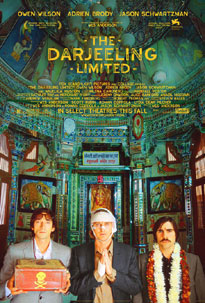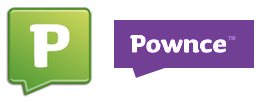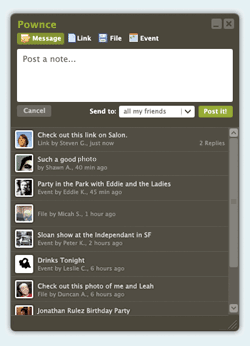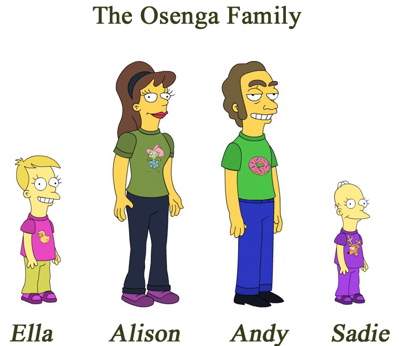Blog
Breaking News: Freeway Bridge Collapses Near Downtown Minneapolis
I have not yet been home, but just two hours ago the 35W bridge over the Mississippi River just two blocks from my house. At least three people are killed, according to the latest reports. Please pray for everyone in Minneapolis and anyone whose families are affected.

Round Two: Treo vs. iPhone
Well, here we are at the second time around. On Saturday, because I could barely stand not having a phone, I went to the Sprint store and bought myself a Palm Treo 755p. I figured, well, it's $400 cheaper up front, and I can keep my plan a bit lower than what I would get from AT&T. Plus, it's still Palm OS, so I can use all my favorite Palm apps. And, yes, Palm OS 5 is a bit more slick. It's got Bejeweled and a nice Google Maps app. But that's where the fun ends.
 My last Palm phone (the Samsung i500) was small and functional. It was a flip-phone, so the screen was well-protected. It worked as a phone because it was just a bit bigger than most cell phones but had all the Palm functionality. It may have been running Palm OS 3, I think, but it still did everything I wanted it to. I could check e-mail, I could write notes, I could read the Bible.
My last Palm phone (the Samsung i500) was small and functional. It was a flip-phone, so the screen was well-protected. It worked as a phone because it was just a bit bigger than most cell phones but had all the Palm functionality. It may have been running Palm OS 3, I think, but it still did everything I wanted it to. I could check e-mail, I could write notes, I could read the Bible.
Yeah, I can put all my old apps on this new phone, including Pocket Quicken. But the form factor sucks. It looks and feels like I'm carrying around a PDA, not a phone. There's 49 buttons on the phone, compared to the Samsung's 28.  With no protection for the large screen, I feel like I need to get a case, but I can't find a case that I like at all. And, most of all, there's no way to use Graffiti. On my old Palm, I entered all the text by writing on the writing pad area instead of pressing a bunch of keys. It was a much better use of space than putting 35 tiny keys that, if any smaller, would be impossible to press. I'm pretty sure I could type faster with writing letters out than hunting and pecking on a mini-keyboard. So far, it's been totally frustrating.
With no protection for the large screen, I feel like I need to get a case, but I can't find a case that I like at all. And, most of all, there's no way to use Graffiti. On my old Palm, I entered all the text by writing on the writing pad area instead of pressing a bunch of keys. It was a much better use of space than putting 35 tiny keys that, if any smaller, would be impossible to press. I'm pretty sure I could type faster with writing letters out than hunting and pecking on a mini-keyboard. So far, it's been totally frustrating.
Unless the condition improves over the next couple weeks, I may forgo the Palm and go with the first-generation iPhone. It's not going to be too much better, but at least I won't be frustrated with the basics of the phone.  I just won't have Pocket Quicken, MyBible, or Bejeweled to keep me on top of things and entertained. What I will have, though, is the ability to only carry my iPhone around, and not a phone and an iPod. One a weekday basis, I really only listen to podcasts, so I would save my iPod for trips or doing the dishes. Also, if I wanted to, I could be watching that podcasts I currently listen to the audio version of while on the way home from work. It won't be perfect, but right now, it seems like it'll be better than the Treo, that's for sure.
I just won't have Pocket Quicken, MyBible, or Bejeweled to keep me on top of things and entertained. What I will have, though, is the ability to only carry my iPhone around, and not a phone and an iPod. One a weekday basis, I really only listen to podcasts, so I would save my iPod for trips or doing the dishes. Also, if I wanted to, I could be watching that podcasts I currently listen to the audio version of while on the way home from work. It won't be perfect, but right now, it seems like it'll be better than the Treo, that's for sure.
Treo or iPhone Time?
Well, the night I had been expecting for a while came. I was kinda hoping it wouldn't come for about 6 months, but it did.
My Samsung i500 smartphone fumbled out of my hands and went in an arc about 7 feet to the ground. The battery, of course, fell off of it, but that's happened before. However, this time, it didn't recover, because it doesn't get past the very first loading screen no matter how long I wait. I tried resetting it but it won't do anything.
So now comes the questions. Do I go with a Treo 755p and stay with Sprint or go elsewhere? Do I get a first-generation iPhone with lots of missing features and hope Apple will be nice to us over that long two-year contract with AT&T? Right now, I'm thinking the Treo because there's some important Palm apps I use almost every day that the iPhone does not have. But, after visiting the Sprint website, it looks like I might have to be paying $10-$15 more per month for services with them. That, by the way, puts it on the same monthly price as the iPhone, although the iPhone costs more up front. I can't believe I'm paying more to these greedy, annoying cell companies.
Trailer: The Darjeeling Limited
 A couple days ago a new movie trailer surfaced online from director Wes Anderson, director of fine films such as The Life Aquatic with Steve Zissou, The Royal Tenenbaums, and Rushmore. (Also, if you're a fan but not a longtime reader of my blog, don't miss the commercial he did.) The trailer of note is for his fall release, The Darjeeling Limited. It looks like a signature Wes Anderson flick starring Owen Wilson, Adrien Brody, and Jason Schwartzman. In this film, the three leads seem to be brothers who are reunited and go on an emotional journey to India together. It should be fun.
A couple days ago a new movie trailer surfaced online from director Wes Anderson, director of fine films such as The Life Aquatic with Steve Zissou, The Royal Tenenbaums, and Rushmore. (Also, if you're a fan but not a longtime reader of my blog, don't miss the commercial he did.) The trailer of note is for his fall release, The Darjeeling Limited. It looks like a signature Wes Anderson flick starring Owen Wilson, Adrien Brody, and Jason Schwartzman. In this film, the three leads seem to be brothers who are reunited and go on an emotional journey to India together. It should be fun.
In more industry-specific news, it seems that this new release will be distributed by Fox Searchlight and not Touchstone Pictures like all of his earlier films. Also, Anderson has had an upcoming project of animated film of Roald Dahl's The Fantastic Mr. Fox, which will apparently be his next release in 2009. That should be interesting.
In more homely news, a couple friends noticed the release date for The Darjeeling Limited is September 29th or somewhere around there. Many of my friends who currently live around the country will be in Indiana for the weekend, so maybe we should have an excursion to the local theater together?
Harry Potter Breaks Records
 On Saturday, Harry Potter and the Deathly Hallows, the seventh and final book of the series, was released worldwide. It seems that, like the last couple books J.K. Rowling wrote, it will go down in history as the world's fastest-selling book.
On Saturday, Harry Potter and the Deathly Hallows, the seventh and final book of the series, was released worldwide. It seems that, like the last couple books J.K. Rowling wrote, it will go down in history as the world's fastest-selling book.
The book's US publisher, Scholastic, said that an approximate 8.3 million copies were sold on the first day in sales. Scholastic prepared well, though, running an initial printing of about 12 million copies. The last book, Harry Potter and the Half-Blood Prince, sold approximately 6.9 million copies on release day. Amazon.com reported that they had pre-orders of 2.2 million copies, for most likely the biggest order by one retailer. (That's a bunch of trucks coming to their warehouses!) UK sales are estimated to be around 3 million copies, according to a BBC News report.
Are these numbers big? That's a good question. In the first day of sales, The Incredibles on DVD sold 5 million copies and ended up selling a total of 17.5 million in the first nine months. There may be a couple higher-selling DVDs out there, but that's still near the top. An estimated 93.2 million viewers tuned in for this year's Super Bowl, which I think is interesting. It tells me that free stuff paid for by advertisers gives you a much bigger audience, but would anyone pick up a book if there were ads for cars and food every 10 pages?
Even though it seems like tons of people have copies, it only comes out to 2.7% of the United States population bought the book on the first day. I guess it must be a bunch higher around my group of friends, though, because it seems about 10% have a copy at our house.
Just for fun, I've put both of the UK book covers here at the bottom:

The UK Version
The UK Adult Version
Pownce: Facebook 2.0?
Right now, Pownce (prounounced the same as "pounce") is the new kid on the block that's way cooler than your old MySpace or Facebook was. And they're doing that oh-so-hip invite thing to get you drooling. But will it take off? I don't know, but I'm kinda interested in trying it.
 Many are considering this to be more like Twitter or Jaiku than a Facebook. Well, at least for now. But this does a couple other cool things. First of all, you can set up groups of friends and only send messages to these friends. Otherwise, you can send a message to only one friend or any couple friends you want. Or, of course, they can be public. Second, you can send files to friends. No, they're not as attachments, they're stored on Pownce's servers for your friends to get. Third, not only is there the website, but there's a really nice application made of the new Adobe Air (formerly Apollo) technology, so you can run Pownce on your Mac or Win desktop.
Many are considering this to be more like Twitter or Jaiku than a Facebook. Well, at least for now. But this does a couple other cool things. First of all, you can set up groups of friends and only send messages to these friends. Otherwise, you can send a message to only one friend or any couple friends you want. Or, of course, they can be public. Second, you can send files to friends. No, they're not as attachments, they're stored on Pownce's servers for your friends to get. Third, not only is there the website, but there's a really nice application made of the new Adobe Air (formerly Apollo) technology, so you can run Pownce on your Mac or Win desktop.
 From the look at the specs, this stuff is also using the coolest in Open Source technologies. Of course, it's running Debian, Apache and MySQL, but it's also running on the new Django framework for Python. Plus, it's got everything a Web 2.0 start-up team needs, from Kevin Rose, the inventor of digg to a designer who almost defines the "Web 2.0" look and a blogger chick who does most of the development.
From the look at the specs, this stuff is also using the coolest in Open Source technologies. Of course, it's running Debian, Apache and MySQL, but it's also running on the new Django framework for Python. Plus, it's got everything a Web 2.0 start-up team needs, from Kevin Rose, the inventor of digg to a designer who almost defines the "Web 2.0" look and a blogger chick who does most of the development.
What's going to stop them? Not much, except that you know everyone is sending each other music and movies and the suits aren't going to let that last too long.
Memorable Marketing & The Simpsons
It seems that, these days, you have to have some really unique, really attention-grabbing marketing to get people's attention. And, I have to say, the folks at Fox have been pulling out all the stops in this regard for The Simpsons Movie. Here's a couple good examples:
One of the coolest thing in a while is the official Simpsons Avatar Creator over at the official movie site. (Above are some that Andrew Osenga made to depict him and his family.) It's fun, because you can make almost an infinite number of possibilities of characters, including all the characters in the movie and, hopefully, yourself. I haven't played around with it enough, but I didn't find it too easy to make whatever, or at least not make something that you say, "That's totally my friend Isaac as a Simpsons character." It's definitely fun, and you can share them with your friends if you like what you came up with. As the site says, "Ready to work some yellow magic?"
 Also, one of the most ingenious things is their recent partnering with 7 Eleven to transform a dozen stores into a full-fledged Kwik-E-Mart for a month or two. There's not one in my market, but everyone who does have one seems to be talking about it. Not only does the outside look like a Kwik-E-Mart, but they've hired people that look like Apu to man the counter and make the usual silly comments. They also have all the signature Kwik-E-Mart foods, such as Squishies, Buzz Cola, and Krusty-Os cereal, and even a Radioactive Man special-edition Comic Book. In my opinion, this is a very creative and fun way to promote the movie, and I applaud 7-Eleven for doing something a bit risky but ultimately fun.
Also, one of the most ingenious things is their recent partnering with 7 Eleven to transform a dozen stores into a full-fledged Kwik-E-Mart for a month or two. There's not one in my market, but everyone who does have one seems to be talking about it. Not only does the outside look like a Kwik-E-Mart, but they've hired people that look like Apu to man the counter and make the usual silly comments. They also have all the signature Kwik-E-Mart foods, such as Squishies, Buzz Cola, and Krusty-Os cereal, and even a Radioactive Man special-edition Comic Book. In my opinion, this is a very creative and fun way to promote the movie, and I applaud 7-Eleven for doing something a bit risky but ultimately fun.
Reaction: Apple iPhone
So, the iPhone has been in the hands of consumers and reviewers for over a week, and there's been many reactions. Here's what I've found after reading about it, listening to podcasts, and also using it myself.
First of all, as I've already said, the lack of an SDK to make dedicated applications may enhance the reliability of the device, but it seriously hinders my like of it. I can see why they'd want to sandbox all of that in the browser, but in order to support powerful functionality, developers need access to things such as Google Gears and Adobe Air (formerly Apollo) to allow useful applications even when disconnected from the 'Net as well as Flash support.
Also, there's a number other things that are just stupid. Apple claims that the iPhone is the best iPod they've ever made, but there's a couple problems with that claim. First, it only holds up to 8GB, a bunch of which will be taken up by the OS and other data. Second, they recessed the headphone jack so that only headphones made for iPhone will work in it, unless I feel like taking a knife to my current headphones. Bad, bad idea, Apple. I'll wait for a version that doesn't lock us into iPhone peripherals. Third, although the chipset apparently supports high-end stereo Bluetooth headphones, the software does not, so the only thing you can use is one-ear Bluetooth headsets, and who wants to listen to music on that? Turning it on its side widens the web browsing experience as well as others, but only in the web browser can you get the wider, bigger keyboard as well. That might be nice to have throughout.
However, after playing with an Apple iPhone a number of times in the past week, it definitely is an amazing phone. It's the easiest phone I've ever used to browse the web (at least over WiFi) and to input text. The integration of Mail, Phone, and Google Maps throughout the iPhone is amazing, for your contacts can easily jump to Maps, calling them, or e-mailing them. Zooming, panning, and selecting areas by pinching are all really easy and the interface is very consistent and simple throughout.
There are many ways it blows my current Samsung phone out of the water, but I'm going to stick with my current phone for a while longer. First, the rumors seem to be that some of my concerns could even be resolved in a new version by the Christmas season, although I kinda doubt it. Also, I like to do lots and lots of research for a big purchase like this, so I need to spend more time reading about capabilities and features and testing it out myself. (Some people might know that I actually spent about a year and a half reading up about phones before I finally bought my Samsung i500.) One thing I love is that Apple has their iPhones set up in the store, ready to use and test to your heart's content, which is is a lot better than almost any phone store, where they almost never have the smartphones hooked up or functional. In the end, I'll probably get an iPhone, but it may be a bit before they work out the issues and I buy in.
Reaction: Ratatouille
My sister asked what I thought about Ratatouille, so I thought I'd give my thoughts. Overall, I wouldn't say it was the best Pixar movie ever, but it was definitely up to the Pixar quality.
Of course, it looked amazing. Paris looked exactly like Paris. Everything had those little touches that you'd barely notice but make it that much more life-like. On one of the web featurettes they talked about how they vastly improved the movement and rendering models for humans, and it definitely showed as people were more detailed and expressive than ever. Most of the time, I thought the animation looked so realistic I almost forgot I was watching an animated movie.
I have to admit, I thought the idea of a rat cooking sounded a bit odd. And, at least at first, it was a bit awkward to watch Linguini, a boring young man who didn't really want to have a life, to get poked and prodded by a rat into becoming the best cook in town. I'm not really sure that I enjoyed that the point is again that really PC-style "everyone is beautiful" and "everyone should be accepted for their talents, no matter what they look like," because it's become so clichéd.
Overall, though, it was lots of fun. I definitely enjoyed the scenes in the kitchen, especially from the perspective of a rat scurrying about. Also, I enjoyed the character of the cynical, snobby food critic and his monologue near the end which really will ring true for anyone who is a critic of one sort or another. I think you should definitely check the movie out. Seriously. It's definitely the best of the year so far.
Go PHP5!
I remember in 2004 that PHP 5 was released. At the time, I was not a great programmer (and I'm not sure I am yet either), but I definitely did not understand what made PHP 5 better, that's for sure. Now that I understand PHP better and use it much more on a regular basis, I know how much easier it is to develop web sites with PHP 5.
Back in 2004, hosts were, for good reason, not too eager to upgrade to PHP 5 because it was still not that widely used and therefore not as reliable as PHP 4. Also, it would most likely break some of the functionality of their customer's PHP 4-based sites. Sadly, a majority of hosts still give these reasons over 3 years later.
 Thankfully, some good Open Source folks are working to change that. GoPHP5.org is a coalition of open source project developers and hosts who vow to be converted to PHP 5 by February 2008. The hosts will be running PHP 5 natively, and just to push the industry along, the projects such as Drupal and phpMyAdmin are no longer supporting PHP 4 on versions after February. Those of us who use PHP 5 can look forward to leaner, more efficient programs next year, and I, for one, don't think it can come too soon.
Thankfully, some good Open Source folks are working to change that. GoPHP5.org is a coalition of open source project developers and hosts who vow to be converted to PHP 5 by February 2008. The hosts will be running PHP 5 natively, and just to push the industry along, the projects such as Drupal and phpMyAdmin are no longer supporting PHP 4 on versions after February. Those of us who use PHP 5 can look forward to leaner, more efficient programs next year, and I, for one, don't think it can come too soon.

